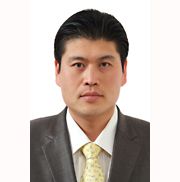Welfare and tax increases
Two key words should be fairness, efficiency
Like other emerging economies, Korea is moving toward a welfare state, as shown by the competitive pledges presidential candidates are making for various public services free of charge. The problem is financing, more explicitly money, an inconvenient truth most politicians avoid facing. It is welcome in this regard that the campaign headquarters of the three major challengers have begun to talk about tax increases.
Their approaches vary but reflect each candidate’s standing in the ideological spectrum.
The campaigners of conservative runner Park Geun-hye are predictably cautious about tax increases, saying that the nation can increase revenue by just changing current rules and raising the rate of value added tax, a kind of consumption tax.
We are afraid that the additional revenue of about 30 trillion won thus created falls far short of the financial resources of 54 trillion won needed to even realize Park’s welfare plan, the most modest among the three.
Liberal candidate Moon Jae-in directly targets big businesses and wealthy individuals, vowing to increase corporate and income tax rates. But the plan has already run into fierce opposition from the big business lobby and conservative economists for discouraging investment amid the economic slump and punishing the rich.
Centrist Ahn Cheol-soo is calling for both the rich and poor to pay more taxes within their capacity. The “universal tax increase” to realize a “universal welfare scheme” is a natural approach, but like most other election platforms of this independent candidate, details are tantalizingly scarce. Still the former medical doctor and computer software mogul appears to be going in the right, and least controversial, direction. His campaigners need to flesh it out with concrete action plans.
The tax increase is a hard political sell, especially in an election season.
But today’s Korea has no other choices but to take the difficult path. Politicians need to be more honest and try to persuade voters with sincerity. This is why we regret the ruling Saenuri Party’s reluctance to increase taxes more boldly, especially for the wealthiest 10 percent or so of people. Its tax reform plan unveiled a few months ago increases revenue by just 2 trillion won, a fraction of the 80 trillion won in lost revenue incurred by the Lee Myung-bak administration’s tax cuts for large corporations and wealthy individuals during the past five years.
The right-wing party calls for broadening the tax base while lowering the tax rate, noting that up to 95 percent of income tax revenue comes from the top-20 earners even now. But poor Korean people will gladly pay taxes from their meager income if only their richer counterparts paid taxes honestly. A recent report by the London-based Tax Justice Network shows Korea’s super-rich are hiding an eye-popping 888 trillion won in offshore tax havens, the third largest amount following China and Russia. What more theories and justifications does this government need to force these unethical people to pay their proper dues?
Koreans need a government that can administer taxation more fairly and efficiently in the genuine sense of these words. <The Korea Times>


